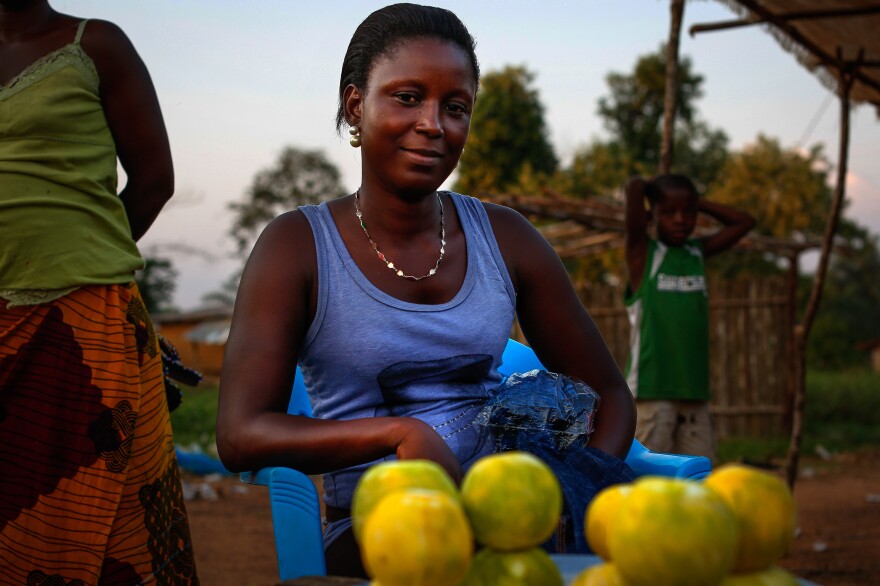Ganta is the Liberian city that never sleeps. That's what local businessman Prince Haward says of the town of 40,000, one of the country's largest cities and a crossroads for travelers in the southeastern region: "Ganta is a nonsleeping city ... a business-oriented city."
It's also a city that has seen its share of tragedy. The scruffy town is located in Liberia's eastern Nimba County, where the country's brutal civil war started in late 1989. Many buildings were destroyed during the conflict and remain gutted; others are still pocked by artillery and mortar fire from the war. And there's been little investment in the gritty city since the conflict ended more than a decade ago. Potholes nearly swallow up vehicles.

So even before Ebola, Ganta was struggling. And now the virus is taking a toll.
For many people, there's very little business right now. Ebola is the reason: The border with neighboring Guinea was closed in July to prevent possible spread of the virus.
Just a hundred yards from the St. John River bridge crossing, young men play whist under the shade of a mango tree. They used to be money changers. A very unhappy Prince Dolo says the outbreak put an abrupt end to their livelihoods: "I have nothing to do. Border is closed. And I'm vulnerable and unemployed. I'm not happy. Without the border, Ganta is just dead."
Just off Ganta's rutted, red-dust main street, 18-year-old Bebe Gono, who sells ready-peeled oranges, says she's struggling, just like the city. "We are trying to find the little we can afford."
Comparing Liberia's civil war with Ebola in her town, Gono says both have been difficult: "Ganta has suffered a lot. We've lost a lot of people to the war and we've also lost a lot of people to Ebola. As compared with the war, Ebola is worse."
Gono never went to school and can't read or write. But true to the entrepreneurial spirit of her town, she has dreams of a better life. If she had a little money, she'd like to open a business in the city that never sleeps.
Copyright 2021 NPR. To see more, visit https://www.npr.org.






